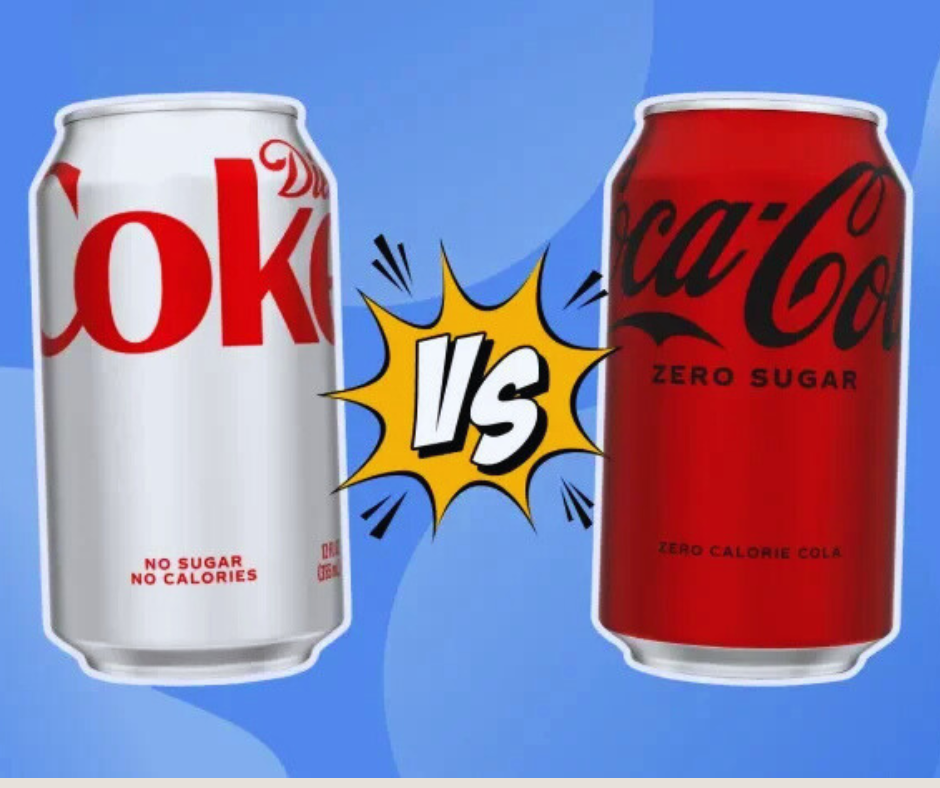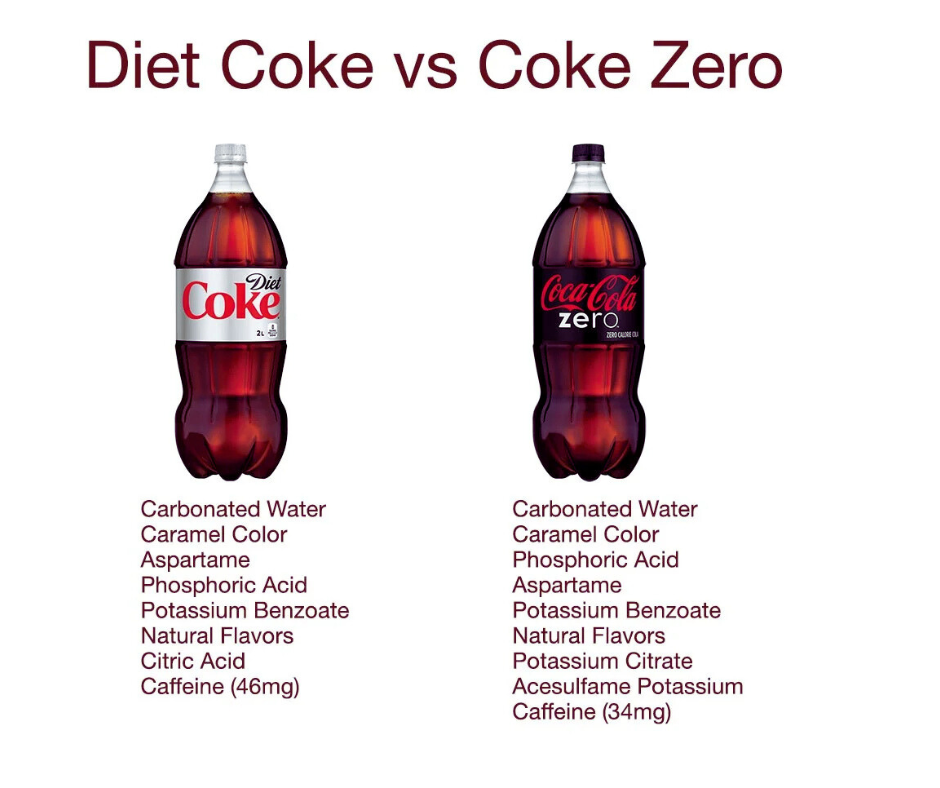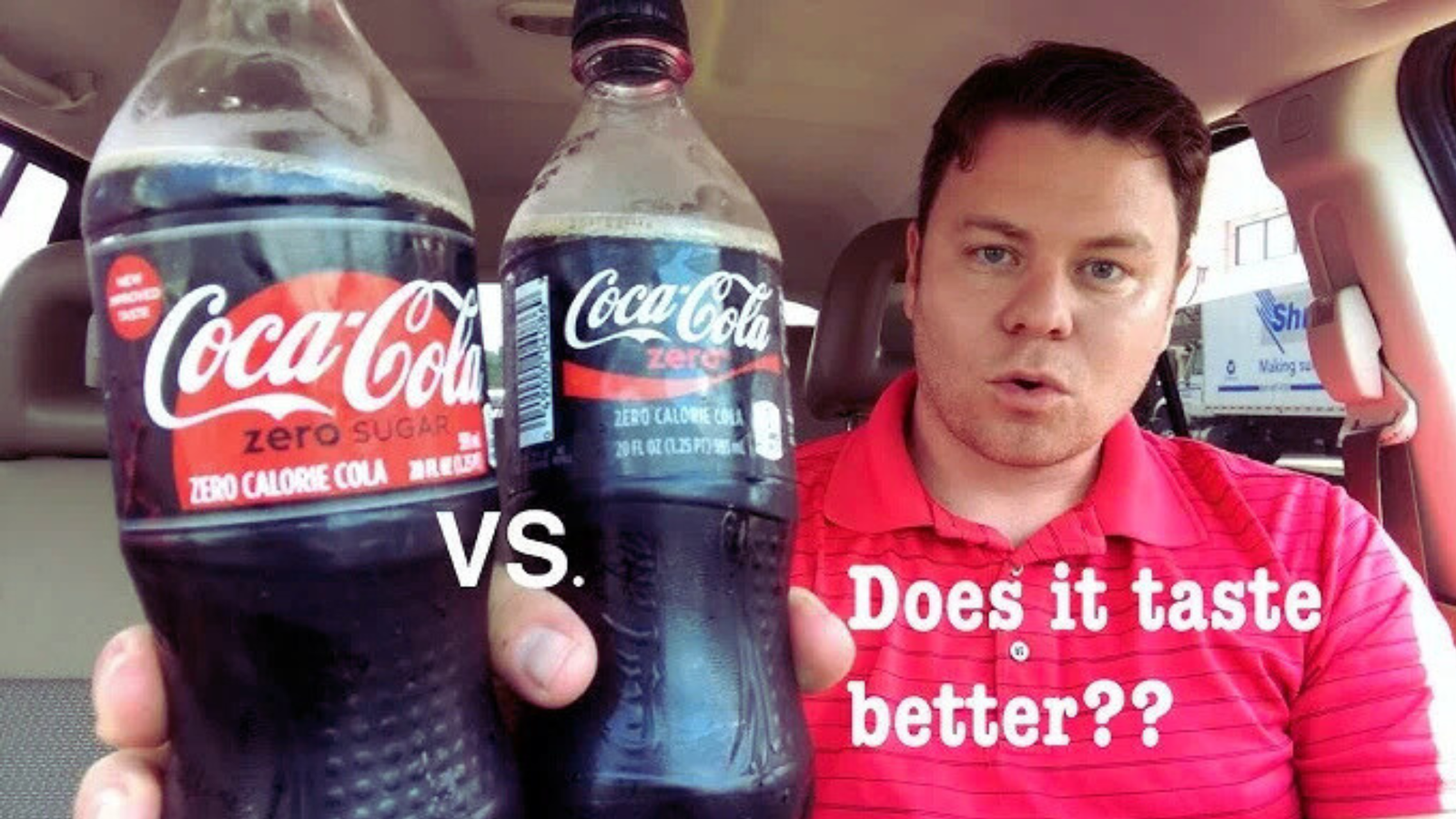
Coca-Cola holds the title of the world’s most popular soda, as per the latest report from Statista. While sugary soda sales are still strong, many people are now opting for healthier alternatives to quench their thirst and satisfy their sweet tooth. This is where Coke Zero and Diet Coke come into play. They offer the classic Coke taste without the calories or sugar.
These sugar-free options have sparked debates between soda enthusiasts about which one is superior. Some prefer Diet Coke for its unique taste, while others favor Coke Zero Sugar for its closer likeness to Coke.
The main difference between Coke Zero and Diet Coke lies in their artificial sweeteners. Both use aspartame, but Coke Zero also includes acesulfame potassium, which can change the taste a little. Here is a closer look at the Diet Coke vs Coke Zero differentiation.
The Origins of Coca-Cola’s Sugar-Free Drinks
On May 8, 1886, Coca-Cola was first created by pharmacist John Stith Pemberton in Atlanta, Georgia. By the 1960s, as concerns about obesity began to grow and diet culture gained popularity, people started looking for sugar-free drink options. This led to the idea of a “diet” Coke, which was discussed by company executives for about 20 years.
Finally, in 1982’s summer, Diet Coke was launched. It was promoted as an “excellent-tasting soft drink that has only one calorie instead of just a diet drink,” as per the Coca-Cola website. Within a year of its launch, Diet Coke became the top-selling diet soft drink in the United States.
From 1984 to 2010, it was the country’s 3rd most popular soft drink, just behind Coca-Cola and Pepsi. Even with Diet Coke’s huge success, Coca-Cola continued to innovate. In 2005, they introduced Coca-Cola Zero, which offered the classic Coke taste without any calories or sugar.
Furthermore, in 2017, the company updated the packaging, recipe, and name to what we now know as Coke Zero Sugar. According to a Coca-Cola press release, “We’ve used our in-house innovation capabilities to make the great taste of Coke Zero even better and a lot like a Coke. It’s delicious, refreshing, and our best-tasting zero-sugar Coca-Cola yet.”
Diet Coke vs Coke Zero: Nutrition Facts and Ingredients Differences

Below are the nutrition facts and ingredients for Diet Coke vs Coke Zero. In this section, I will discuss the main differences and similarities of these two types of drinks that you might find interesting.
Diet Coke Nutrition Facts
Diet Coke is made with the following ingredients:
- Aspartame
- Carbonated water
- Potassium benzoate (to preserve flavor)
- Caramel color
- Phosphoric acid
- Citric acid
- Natural flavors
- Caffeine
It also has the amino acid phenylalanine, so individuals with phenylketonuria (PKU) shouldn’t drink it.
A 355-milliliter (12 oz) can of Diet Coke contains:
- Total fat: 0 grams
- Calories: 0
- Sodium: 40 milligrams
- Sugar: 0 grams
- Carbohydrate: 0 grams
- Caffeine: 46 milligrams
- Protein: 0 grams
Diet Coke doesn’t have any additional sugars because it uses artificial sweeteners. The regular version uses aspartame, but there’s also a version made with Splenda, which is a type of sucralose. Diet Coke comes in different flavors like feisty cherry and ginger lime. In addition, you can get Diet Coke in a caffeine-free version.
Coke Zero Nutrition Facts
Coke Zero is made with the following ingredients:
- Phosphoric acid
- Carbonated water
- Potassium benzoate (to maintain flavor)
- Caramel color
- Aspartame
- Natural flavors
- Caffeine
- Acesulfame potassium
- Potassium Citrate
Similar to Diet Coke, Coke Zero includes the amino acid phenylalanine, so individuals with phenylketonuria (PKU) should avoid it.
A 355-milliliter (12 oz) can of Coke Zero has:
- Total fat: 0 grams
- Calories: 0
- Sodium: 40 milligrams
- Sugar: 0 grams
- Potassium: 60 milligrams
- Carbohydrate: 0 grams
- Caffeine: 34 milligrams
- Protein: 0 grams
Coke Zero doesn’t have any added sugars because it uses artificial sweeteners. It is available in several flavors, such as vanilla, cherry, orange vanilla, and cherry vanilla. Just like Diet Coke, you can also find a caffeine-free version of Coke Zero.
Diet Coke vs Coke Zero: Key Differences

These products are quite similar, particularly with their major selling point: sugar-free. In general, their nutritional values and ingredients are quite alike. The main differences between these two types of drinks lie in the sweeteners and caffeine content, though these differences might not matter much to most people.
Diet Coke uses aspartame as its sweetener, while Coke Zero combines aspartame with acesulfame potassium, also known as “acesulfame K” or “Ace K.” Acesulfame potassium is a zero-calorie sweetener that goes through your body without affecting blood sugar levels.
According to the ingredient label on Diet Coke, aspartame is its main sweetener. Since ingredients are documented orderly in the packaging by weight, it’s likely that Diet Coke has much less acesulfame potassium. This makes the ingredients of these drinks quite similar.
Another crucial difference between these two drinks is the caffeine content. Coke Zero contains less caffeine compared to Diet Coke. Both drinks contain caffeine levels that are far below the recommended daily limit of 400 milligrams for adults.
The taste difference between Diet Coke and Coke Zero is often debated. Some people find no difference in taste, while others are convinced that one tastes more like the real Coke than the other.
Diet Coke vs Coke Zero: Taste Differences

To truly compare these Cokes, a taste test is essential. So, we bought bottles of Coke Zero and Diet Coke to see how they measure up against each other.
Diet Coke
After a few sips, I decided to open the whole bottle of Diet Coke. One sip was enough to make me hesitate before taking another. It seemed to lack that classic Coke taste, coming across as a watered-down or imitation version of Coca-Cola. Diet Coke tasted a little bit bland.
The flavor of Diet Coke fades quickly, so you need to keep drinking to maintain the taste. However, its mineral-like finish and strong artificial aftertaste that lingers on your tongue might make you think twice. I will pass on this one.
Coke Zero
At first taste, it was hard to tell that this sugar-free version differed from the original Coke. It has more fizz than Diet Coke and offers a richer, more complex flavor without the unpleasant mineral aftertaste. With more sips, I noticed it had a sweeter, bolder taste compared to the original, almost as if Coke Zero is trying extremely hard to mimic Coke.
Some people, particularly those not used to artificial sweeteners, may find it sweeter than Coke. This sweetness overpowers other flavors in this sugar-free version. Despite this, I found it much more enjoyable compared to Diet Coke and a great option for those looking for a sugar-free soda.
Side Effects of Coca-Cola’s Sugar-Free Drinks
For most people, drinking carbonated drinks in moderation doesn’t lead to many harmful effects. However, artificial sweeteners and caffeine might have negative impacts on some individuals, even with moderate consumption. If you are extremely sensitive to caffeine, it’s wise to monitor your intake of these drinks, though they generally contain low caffeine levels.
According to the American Migraine Foundation, aspartame might trigger headaches in some people. While this effect can vary, it’s helpful to be aware so you can identify the cause of headaches that occur after consuming these beverages. Some research suggests that aspartame could be linked to cancer, but other studies disagree.
More long-term, high-quality research is needed to establish any connection between aspartame and cancer. People who prefer to be cautious about food ingredients might choose to avoid aspartame, which is understandable. However, it is important to note that the Food and Drug Administration (FDA) says aspartame is safe to consume.
Like aspartame, acesulfame potassium has been studied for potential cancer risks in both older and newer research. Again, the evidence is not clear, and more extensive studies are necessary. The FDA also approves acesulfame potassium.
Diet Coke vs Coke Zero: Which One Do I Prefer?
Coke Zero is my winner in the Diet Coke vs Coke Zero debate. Whether I’m choosing from a vending machine or on a flight, I will always go for Coke Zero. Nutritionally, there’s not much difference between the two. Their caffeine levels and ingredients are quite similar, so you can’t say one of them is healthier than the other.
Your choice will mostly come down to taste preference. Many say Coke Zero tastes more like the original Coke, but some individuals differ from this perspective and might prefer the flavor of Diet Coke, even over regular Coke.
